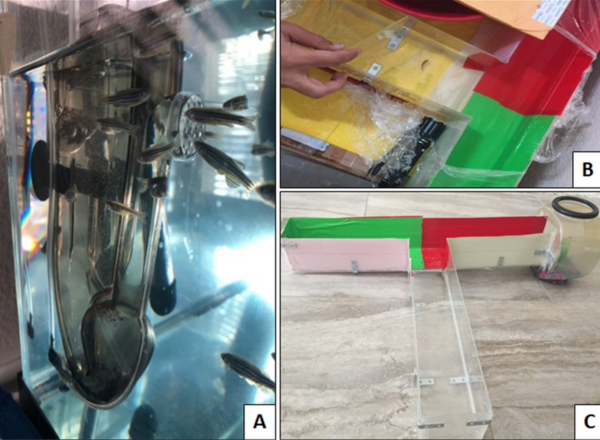A Crossover Study Comparing the Effect of a Processed vs. Unprocessed Diet on the Spatial Learning Ability of Zebrafish
(1) Coppell High School, (2) Cleveland Clinic
https://doi.org/10.59720/21-207
The current study aimed to compare the short-term effects of processed versus unprocessed food on spatial learning and survival in zebrafish (Danio rerio). Given public concern regarding processed foods, the results of the current study can inform consumer decision-making. We hypothesized that an unprocessed diet would improve learning and survival. Zebrafish were randomly assigned to a diet of brine shrimp flakes (processed) or live brine shrimp (unprocessed). Spatial learning was evaluated throughout the study by recording fish decisions (correct vs. incorrect) and time taken for decision. Our results show no statistically significant difference in the proportion of correct decisions or in the time taken to make decisions when the groups are compared. Notably, fish receiving unprocessed food had significantly lower mortality than those receiving processed food (p = 0.027). We concluded that while the zebrafish make progressively better and faster decisions, diet type does not contribute to improved learning. However, consumption of unprocessed diet may have survival benefits in stressful environments. Future studies may further analyze this association, utilizing larger sample size and longer study duration to clearly assess the effects of long-term exposure to an unprocessed vs. raw unprocessed diet on learning. While it is an association that needs further evaluation, the current study indicates the potential benefits of an unprocessed diet in coping with stress. Considering that zebrafish are effective models of human cognition, this has implications for human consumption of processed vs. unprocessed foods as well.
This article has been tagged with: